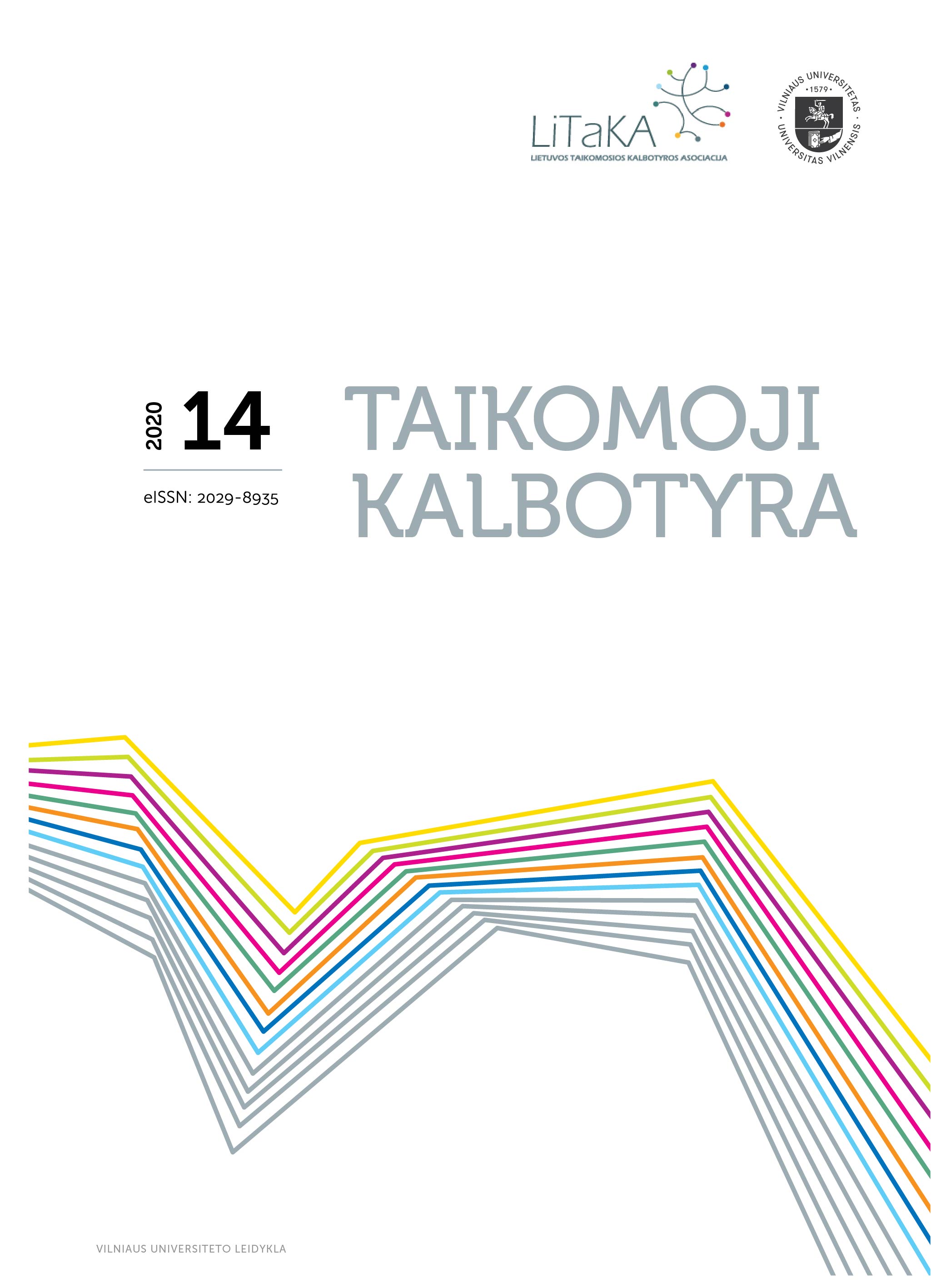Nedarnioji vaikų dvikalbystė mišriose emigrantų šeimose
Unharmonious early bilingualism in inter-ethnic Lithuanian emigrant families
Author(s): Inga HilbigSubject(s): Language and Literature Studies, Sociolinguistics
Published by: Vilniaus Universiteto Leidykla
Keywords: early simultaneous bilingualism; minority language; inharmonious bilingualism; Lithuanian emigrant families; inter-ethnical families;
Summary/Abstract: The article seeks to investigate the main reasons that cause inharmonious early bilingualism in inter-ethnic Lithuanian emigrant families. The data consist of extracts from 25 semi-structured interviews with Lithuanian women and Facebook comments of such emigrant mothers. Firstly, the study identifies the reasons why some informants themselves do not speak Lithuanian in their families, which leads to their children not even being able to understand it. These reasons can be lack of knowledge about the nature of early simultaneous bilingualism with a minority language, weak or negative attitudes towards Lithuanian and/ or Lithuania, urgent need to fully integrate, influence of non-Lithuanian speaking partners, dominance of the majority language over bilingual mothers, and children’s passive bilingualism or insufficient comprehension skills. On their part, children can be growing up passively bilingual because of the minority language input shortage, not enough possibilities and real need to practice it in their daily lives, and because mothers tolerate bilingual conversations with certain discourse strategies. Finally, this paper examines the factors determining underdeveloped or attriting competences in the minority language. Children might be able to participate in very simple colloquial conversations in Lithuanian but cannot express themselves more freely in it or on different topics. They lack higher quality and more various input, e.g. through books or films in the Lithuanian language. They protest against minority language classes, where they could have a chance to learn to read and write in the minority language and further develop their skills. The analysis has revealed a variety of different reasons and their complex combinations that contribute to inharmonious bilingualism with Lithuanian as a minority language. They are objective and subjective, primary and secondary, sociolinguistic, psychological, pedagogical, and maybe some other reasons. A crucial role is played by mothers’ negative emotions in the face of struggles and children’s resistance, which also negatively affects success in bilingual child-rearing.
Journal: Taikomoji kalbotyra
- Issue Year: 2020
- Issue No: 14
- Page Range: 1-20
- Page Count: 20
- Language: Lithuanian

